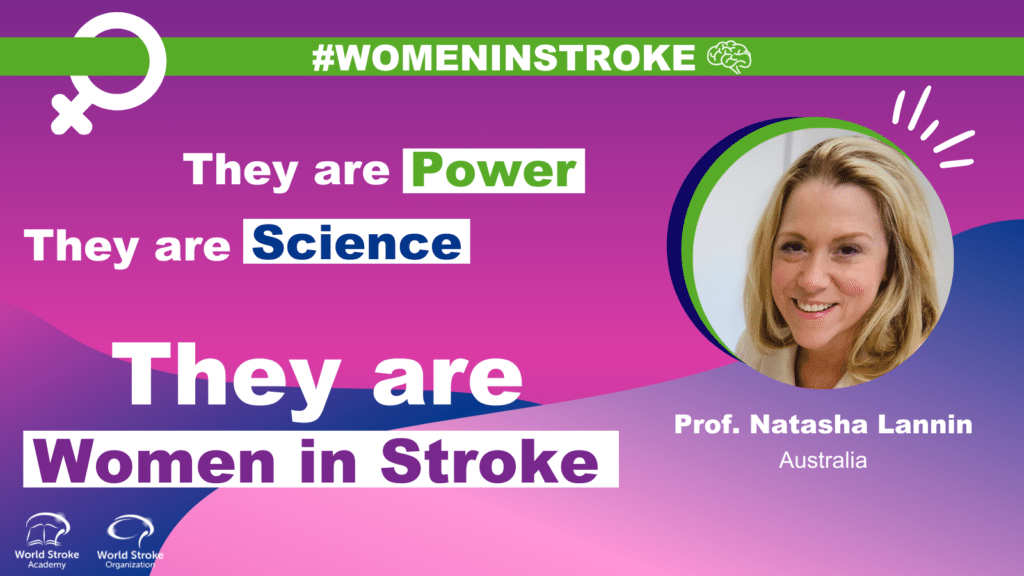Interview
Interview to Prof. Natasha Lannin by Laura Ceci Galanos
Question: What does being “outstanding” in your field of work mean to you? How do you usually measure success?
Answer: Thank you so much. To me, being “outstanding” in stroke rehabilitation means producing rigorous science that solves real-world problems. The sort of problems that face people undergoing rehabilitation and rehabilitation clinicians alike. So to measure success, I try to use indicators of this type of impact – I certainly strive to ensure the care we provide is underpinned by high quality evidence.
Question: Besides Neuroscience and in particular Brain Recovery and Rehabilitation in what other areas would you have liked (or still would like) to stand out?
Answer: I suspect I will always be driven to better understand how to support brain recovery through rehabilitation, but the other area I would like to stand out in is one I think we all have a responsibility towards- that is creating a progressive, inclusive environment that allows diversity in stroke research.
Question: In your opinion, what are the reasons for women’s lack of advancement into leadership positions?
Answer: I think biases come into play. There are obviously those gendered perceptions that start as a joke, but reinforce the stereotypes and biases we face in the workplace – we’ve all heard them, things like “men are good leaders” while women who display exactly the same characteristics are labelled “bossy”. But it is implicit bias, and this is really hard to combat since it is unconscious. It can play a huge role in who is selected to sponsor and promote (typically “people like us”). So, if it is men who are in positions to select and support advancement within the hospital or university, then the status quo where we have gender inequity, is likely maintained.
Question 5: As a woman, what is your advice to young female colleagues who feel they are not taken seriously by patients or colleagues at work?
Answer: While it is not uncommon, and I acknowledge that it may never be possible to change a colleague or patient’s perception, my advice would be to be prepared to believe in yourself, in your own strengths, and in the work you do. Where you can, look to have people around you who hold these same beliefs – having mentors who can remind you of your strengths, especially on tough days, is critical.


